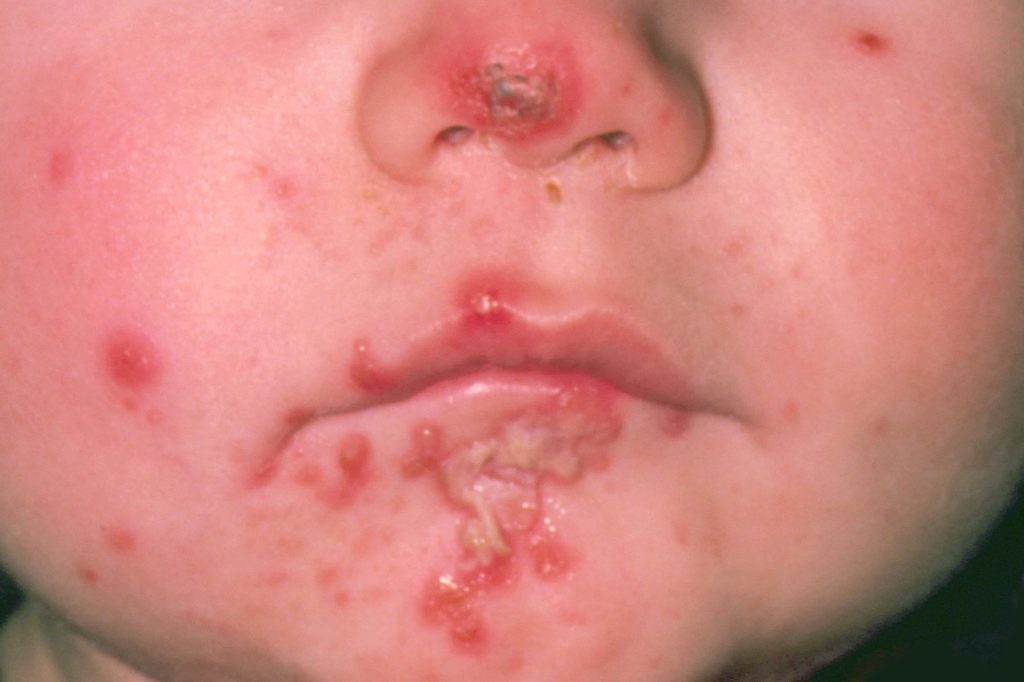Infection Prevention and Control Team
Lanchester Road Hospital
Lanchester Road
Durham
DH5 1RD
Phone: 0191 333 3584
Email: [email protected]

What is Impetigo?
Impetigo is a common bacterial skin infection that is contagious but not usually serious. It is most common in children, but anyone can be infected.
Impetigo can cause sores usually around the mouth and nose (referred to as non-bullous) or fluid filled blisters (referred to as bullous), that occur on the face, but can also be found elsewhere on the body.
The affected area can look like cornflakes stuck to your skin, they can increase in size and can be painful and itchy.
Anyone can become infected, but you’re more likely to get impetigo if you have damaged skin from a cut or graze, insect bites, head lice, scabies, cold sores, or a skin condition like eczema.
People with diabetes or low immunity are also more susceptible to getting impetigo.
Signs and symptoms?
It is important to note that symptoms for impetigo don’t usually occur until 4 to 10 days after you first become infected.
What to look out for:
- Impetigo causes sores or blisters that burst and leave crusty, golden-brown patches on your skin.
- The sores or blisters are most likely to appear on your hands or face but can spread to other parts of the body.
- The sores and blisters can be itchy and sometimes painful.
How does it spread?
Impetigo can easily spread to other parts of your body or to other people until it stops being contagious. The infection can spread through close contact with someone, including sharing towels and face cloths.
How is impetigo treated?
Impetigo can be treated with either an antibiotic cream or oral antibiotic medication. In some cases, you may be prescribed a non-antibiotic cream.
Impetigo usually improves after 7 to 10 days of applying treatment. However, it is important that you do not stop your treatment early, even if the impetigo appears to improve or clear.
Do
- Do stay away from work or school.
- Do keep the affected areas clean and dry.
- Do cover the affected area with loose clothing or dressings.
- Do wash your hands regularly following the hand hygiene guidelines.
- Do wash bedding, towels, and face cloths at a high temperature.
- Do wash or wipe toys with detergent and warm water if your children have impetigo.
Don’t
- Don’t touch or scratch the affected area – this can also help to stop scarring.
- Don’t have close contact with individuals with diabetes or a weakened immune system.
- Don’t share bedding, towels, and face cloths.
- Don’t prepare food for others.
- Don’t go to the gym or play contact sports.
When can I return to work/school?
You should remain off work or school until 48 hours after your first treatment or until the sores have dried out and healed.
Where can I get further information?
If you require further information, please ask the ward staff or the infection prevention and control nurse.
L1173, v1, 25/04/2022 (archive 25/04/2025)